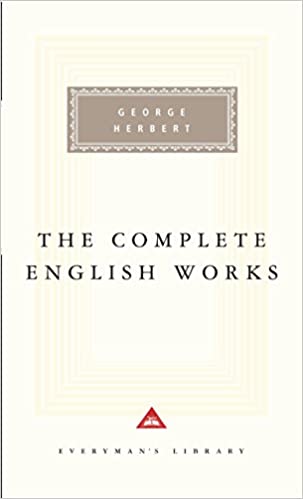
Each Good Friday my family has a tradition of reading George Herbert’s magnificent poem, The Sacrifice (1633). Herbert was an English Protestant who served as a country priest in the Church of England before dying at a young age. His poetry is among the finest devotional poetry ever.
Even though Good Friday is past, the glory of this poem still rings in my head, and I thought I’d share a few tidbits.
The poem is comprised of 63 stanzas (making it rather long). Each stanza has four lines, and they all end with “Was ever grief like mine?” (there are two poignant exceptions to this). The poem is written as if spoken by Christ, and describes the final hours of his suffering.
Below I’ll share a few of my favorites, along with some comments:
So sits the earth’s great curse in Adam’s fall
Upon my head: so I remove it all
From th’ earth unto my brows, and bear the thrall:
Was ever grief like mine?
The crown of thorns on Jesus’ head is shown to symbolize the entire, awesomely heavy weight of the curse, all of it weighing upon our savior’s head.
Then with the reed they gave to me before,
They strike my head, the rock from thence all store
Of heav’nly blessings issue evermore:
Was ever grief like mine?
The head of Jesus is likened to the rock of Exodus 17, which yielded life-giving water, but only when struck.
O all ye who passe by, behold and see;
Man stole the fruit, but I must climb the tree;
The tree of life to all, but only me:
Was ever grief like mine?
Adam stole the fruit, but Jesus the innocent must climb the tree—the cross. The cross is a tree of life to all, except Jesus.
Now heal thy self, Physician; now come down.
Alas! I did so, when I left my crown
And father’s smile for you, to feel his frown:
Was ever grief like mine?
In response to the crowd’s jeering that he save himself and come down, Jesus reminds them that he has already come down, not from the cross, but from heaven to become a man and die.
Betwixt two thieves I spend my utmost breath,
As he that for some robbery suffereth.
Alas! what have I stolen from you? Death.
Was ever grief like mine?
Jesus is a “robber”: he stole death from us!
The power of the poem comes from stanza after stanza like those above, all of them highlighting the awful and poignant sorrow of the cross.
But perhaps the greatest power comes not from the repetition, but from the two departures from the repetition. One I will cite below:
But, O my God, my God! why leav’st thou me,
The son, in whom thou dost delight to be?
My God, my God —
Never was grief like mine.
Amen.

Thank you pastor, we would love to have a a copy of that poem if possible.
Thank you for your comments along with the excerpts. Enjoy these blogs very much.